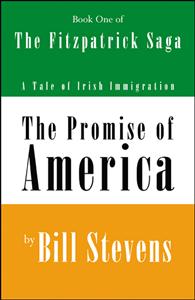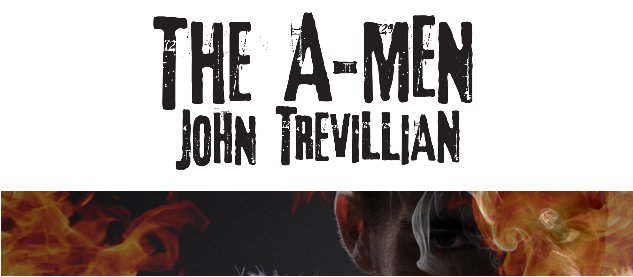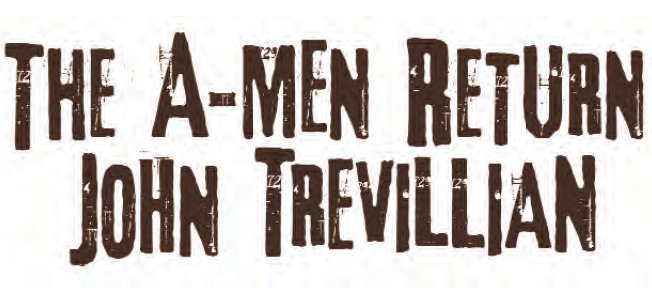I love historical fiction. Period pieces that hone the palette with detailed artifacts, pinpointed event dates, and location-specific dialect, give me a special sense of satisfaction. It’s the next best thing to time travel; however, it’s a narrow tight rope to cross. One misplaced adjective, or contemporary attitude, can stand out like a jet liner across a prehistoric sky. In order to preserve the illusion, you can’t invent gun powder in the dark ages or give Chuck Berry that new sound he’s been looking for, or have Forrest Gump shake hands with the President. The Promise of America by Bill Stevens attempts to walk across a rope spanning the late 1800’s, but I can’t say for sure that he plants every step.
Stevens creates a fantastic tableau of the period with viable and believable instances of historical figures that could be used to launch into exposition of the times and enrichment of the era. All too often, however, the sets fade too far into the background in order to highlight the melodrama of the book’s main characters. William Fitzpatrick comes to America and finds work as a bagman for Tammany Hall in order to support his resentful mother and numerous siblings. Through his work he meets Molly Dunn, a whore-become-Madam and mother herself, who forms a friendly alliance with him. Molly introduces William to Anne and Harvey Barney, an upper class couple unashamed of their marriage of convenience. Harvey is gay and makes no secret of his identity (which seems odd given that Oscar Wilde spent a portion of this period in jail for homosexuality). Harvey’s disposition naturally opens the door to an affair between William and Anne, and she invites our protagonist to intervene with several other bored upper class women in search of a sexual dalliance. While the sex made for a good read, it seemed at times the interpersonal relationships were only motivated by sex – even between characters who are not engaging in the act themselves. Admittedly, I am no expert on sexual behaviors of Tammany Hall denizens, but it seems a bit raunchy even for our day and age. In the end, I was more interested in hearing about Grover Cleveland and the Columbian Exhibition of 1893.
William uses his friendship with the Barneys to venture into the business world of rolled cigarettes, a novelty of the times as most cigarettes were hand-rolled. With his Tammany ties, William ensures a lucrative corner in the market. It’s at this time that he begins to travel the country with Anne. Stevens uses these chapters to describe Chicago and the Midwest in the pre-twentieth century. We see glimpses of Irish influence in Chicago and Kentucky, intertwining with American culture and changing the face of the country. His involvement in the tobacco industry shows us the seed of corporate greed beginning to germinate.
We see glimpses of mistrust of the Irish American immigrant, fears of papal influence in America, nods to Bill the Butcher, and even a fictional take on the invention of Cracker Jack, but these themes are only ancillary to the main plot. Sometimes, they seem forced into the context of the relationships they overshadow. Other times, they are punctuated to such effect as to make the reader cringe.
Overall, The Promise of America is an interesting tale torn between its characters and the times they live in. I kept putting the book down to research a date or event that was mentioned casually in passing, and perhaps that was Stevens’ intent. However, I found myself much more intrigued by the Wikipedia entries of the times than I was by the exploits of the characters. If the pendulum had swung a little more towards the history than the fiction, it may have held my interest longer.
© 2012, The Indie Mine. All rights reserved.





